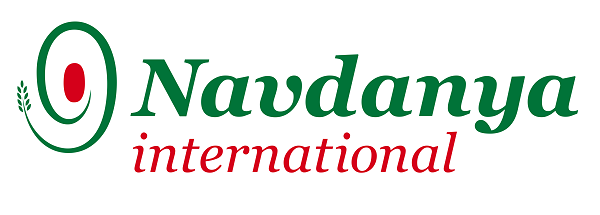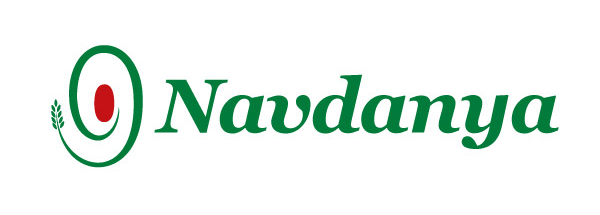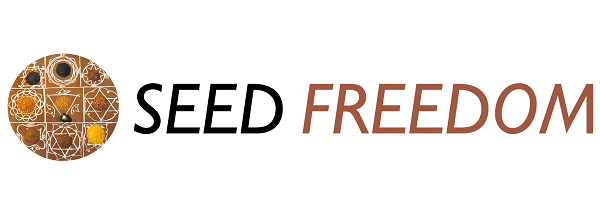The effects of agribusiness on people’s health and, in particular, of the intensive spraying of RoundUp near those communities living close to soy extensive cultivation areas, is heading the news in Argentina.
An article published by La Nación, dated November 10th, analyzes the concerns expressed by medical doctors, who are warning about the multiplication of health problems among those who live near fumigated areas and who – together with civil society organisations – are asking for more regulation of the use of pesticides near villages.
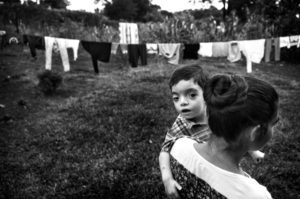
Photo from “The Human Cost of Agrotoxins” photographic exhibition by Argentinian photographer Pablo Ernesto Piovano
There is a pattern in how health problems are increasing and changing which can no longer be ignored: “Dr. Damián Verzeñassi, Professor of Medical Practice at the University of Rosario, has visited 26 locations since 2010 and observed something unusual about epidemiological profiles which are common in those areas. While at the national level the leading cause of death is cardiovascular problems, in these regions one third of the deaths come from some form of cancer, which is 50% more than in the rest of the country. These studies were presented as evidence in trials, in national and international congresses and before any scientific authority that required them.”
“Doctors have also observed an increase in children born with malformations, miscarriages, endocrine problems, breathing difficulties and developmental problems. Dr Medardo Ávila says: ‘I have patients who are children of producers. Parents still try to believe that any disease or even death occurred to their own children does not have anything to do with the spraying of agrochemicals. They still want to believe in the story told by the industry, but sooner or later they will have to start listening to us’”.
[Source (Spanish): ‘Preocupación en los médicos rurales por el uso de agrotóxicos cerca de los pueblos’, La Nación, 10 November 2016: http://www.lanacion.com.ar/1946696-preocupacion-de-los-medicos-por-el-uso-de-agrotoxicos-cerca-de-los-pueblos ]
During the People’s Assembly in The Hague, last October, the workshop on “Pesticides and toxic chemicals” offered a unique opportunity to hear various organisations’ representatives from all over the world present a number of different situations with one thing in common: how the extensive use of chemicals and the lack of regulation in favor of profit for the industry is heavily affecting people’s health and polluting the environment. Among the participants: Ñamoseke Monsanto Paraguay, GM free Australia, PAN Europe and PAN Italy, Associazione Italiana Esposti Amianto, Naturaleza de Derechos Argentina, Ethecon Foundation.
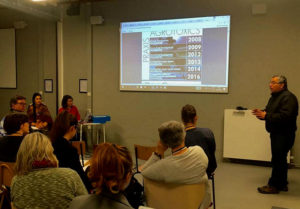 Fernando Cabaleiro, lawyer of ‘Naturaleza de Derechos’ from Argentina, reports: “ We presented the story of GMOs in Argentina, which started in 1991. We reported on our experiences in judicial claims in the last 10 years, how we were able to stop aerial and terrestrial spraying in the vicinity of villages and of rural schools. We also told our colleagues about the recent ruling of the Supreme Court of the Province of Buenos Aires, against Papel Prensa, which obliges companies to prove that pesticides do not represent risk of serious harm to the environment and to human health, whenever they want to make use of them in agriculture”.
Fernando Cabaleiro, lawyer of ‘Naturaleza de Derechos’ from Argentina, reports: “ We presented the story of GMOs in Argentina, which started in 1991. We reported on our experiences in judicial claims in the last 10 years, how we were able to stop aerial and terrestrial spraying in the vicinity of villages and of rural schools. We also told our colleagues about the recent ruling of the Supreme Court of the Province of Buenos Aires, against Papel Prensa, which obliges companies to prove that pesticides do not represent risk of serious harm to the environment and to human health, whenever they want to make use of them in agriculture”.
He also adds: “We know that our legal work is not enough and it is not enough to change the agribusiness model. But we also know that it is a solid, responsible and socially committed work, whose goal is to dismantle the legitimizing system of agribusiness based on junk science.
This junk science has served those who promote agribusiness, including authorities and political power, and tried to make the damage invisible under the spurious argument of multi-causality. But this ruse is not reaching very far, because when asked to guarantee the safety of pesticides and genetically modified organisms, the answer is no. So, if we raise the veil through judicial orders – as we have actually done – reality shows itself as the construction of a lie”.
The importance of the work which was carried out at the People’s Assembly is clearly stated in these words: “During the workshop we were able to listen to brothers and sisters from different parts of the world with the same ideas and even with the same results, they have given us strenght and hope in our position, as we have realized that we are not alone.”
[Source (Spanish): ‘Cronica de la Asamblea de los Pueblos’, Naturaleza de Derechos: http://www.naturalezadederechos.org/asamblea.htm]
The Monsanto Tribunal and People’s Assembly further addressed the issue of pesticides through the photo and video exhibition “The Human Cost of Agrotoxins” by Argentinian photographer Pablo Piovano, which was displayed at Bazaar of Ideas in The Hague.





